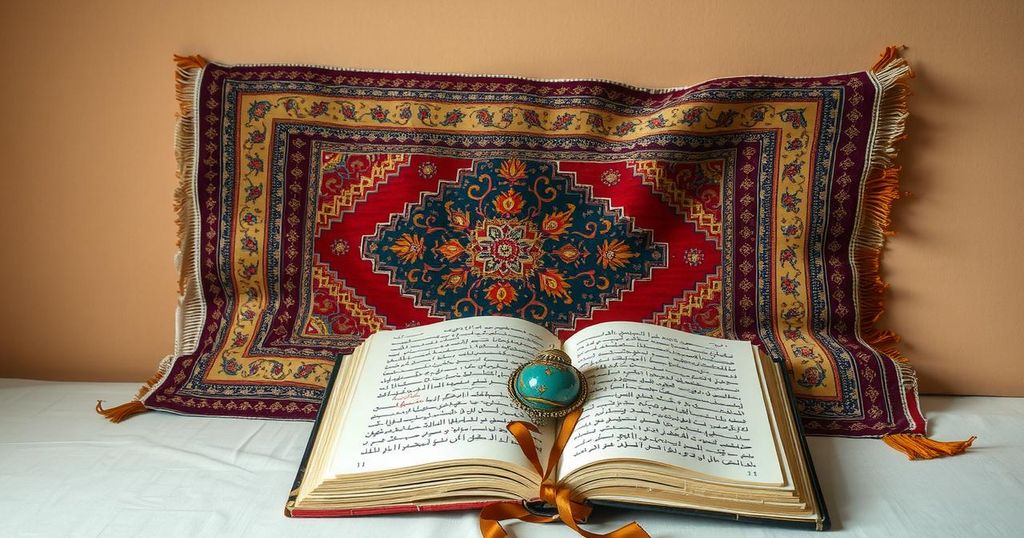Kurdish Community in Syria Advocates for Cultural Rights in New Governance

Kurds in Syria strive to protect cultural rights gained during civil war amidst a power shift. They seek decentralization rather than autonomy while facing renewed conflicts with Turkish-backed factions. Leaders advocate for equal rights and recognition as they navigate political negotiations with new authorities post-Assad regime.
Kurds in Syria, long marginalized under Assad’s regime, are fighting to preserve cultural rights gained during the civil war. Faced now with political shifts, they seek to ensure that changes become permanent with upcoming governance. This includes the freedom to use Kurdish names, teach their language, and celebrate their traditions, especially as they characterize their region as “Rojava Kurdistan” following significant territorial control established during conflicts.
Amira Ali, a resident of Hassakeh, emphasizes that Kurds will not relinquish the cultural advances they have made at any cost. The Kurds filled a power vacuum in northeastern Syria after government forces withdrew, establishing a degree of autonomy and now control roughly 25% of the country. While they negotiate for decentralized governance rather than complete autonomy, tensions still persist with Turkey-backed forces.
The newly aligned authorities in Syria with Turkish-backed groups continue to bring hostilities, pressing the Kurds into precarious positions. Recent fighting has displaced thousands and raised questions about Kurdish rights and representation as negotiations unfold. Kurdish leaders advocate for respect towards minority rights and legal recognition of all citizens, urging a shift in identity designation.
Mazloum Abdi, commander of the Syrian Democratic Forces, urges for a civil, decentralized state that acknowledges all citizens equally. Kurds have fought valiantly against the Islamic State and other conflicts, making their contributions to Syrian society substantial. Recognition and reformation of anti-Kurd policies are critical to ensure a peaceful progression that honors their sacrifices.
The ongoing offensive from Turkey-backed factions poses a severe threat to these cultural and political gains. Many Kurds highlight the challenges of displacement, which many like Goulieh Abdu have faced repeatedly. The struggle for their cultural identity is paramount as they navigate the continual upheaval of their lives amid regional conflicts.
Despite challenges, both the Kurdish leadership and Syrian authorities signal positive intentions for collaboration in the northeast. Statements from Syrian officials indicate an acknowledgment of past injustices against Kurds, suggesting potential avenues for constructive discussions moving forward. Observers hope that ongoing negotiations will cultivate an integrated approach to governance, allowing all ethnic groups an equal footing in Syria’s reconstruction.
The historical context of Kurdish marginalization under the Assad regime laid the groundwork for their cultural struggles in modern Syria. With the civil war creating opportunities for self-governance among Kurds, their efforts to assert cultural identities became prominent. Knowing that their future hinges on interactions with newly established governance, Kurdish leaders seek to secure rights that were denied for decades, focusing on decentralized authority that allows for local governance without political secession.
The Kurdish community in Syria is adamantly working to safeguard the cultural advancements achieved during tumultuous times once dominated by the Assad regime. Their struggle emphasizes the desire for recognition, respect, and representation within a new governance framework without reverting back to past injustices. The ongoing negotiations represent not only a chance for survival but also an opportunity for greater integration and equality in a post-war Syria.
Original Source: www.morningsun.net







